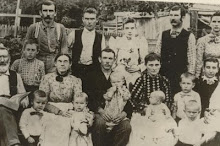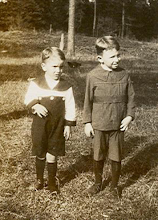| 213 North Shelby • Carthage, Texas 75633 (903) 693-3388 http://oldjaillibrary.org/ |
Panola County, adapted from the Cherokee word for cotton, ponolo, is located in northeastern Texas. Carthage is the county seat. In 1846, the Texas Legislature incorporated Panola County from pieces of Shelby and Harrison counties. Two years later (1848), Panola County chose Carthage as its seat. Various tribes of the Caddo Indians inhabited the area until European advancement in the seventeenth and eighteenth centuries.
During the fifteen years before the Civil War, the county expanded in size and diversified its economic infrastructure through the sale of cotton, sweet potatoes, and livestock. After the war and through the 1920s, Panola County began to stabilize and recover, primarily through the cotton and logging industries. Railroads created additional jobs and helped to build the county's infrastructure. Throughout the 1920s, the county's population decreased slightly, but cotton helped stabilize the uncertain market.
After the Great Depression, the population declined because of a sharp nosedive in property values and available land. The only industry that remained strong through the depression, cotton, took a permanent hit and never recovered. After World War II, Panola County's population decreased over the next several decades because of a combination of permanent decreased land values and decline of the cotton industry. However, by the 1960s and 1970s, the county government worked hard to reinvigorate the depleted soil, but the oil and gas industry became the prominent economy force in the 1970s.
Panola County Historical and
Genealogical Association
and
The Leila Belle LaGrone Family History Center |
213 North Shelby
|
Carthage, Texas 75633
|
(903) 693-3388
|
Our History |
|
The Panola County Historical and
Genealogical Association
(PCHGA) was founded by ordinary people in the community who had an interest in family and local history and who wanted to preserve our heritage. So, they met and formed PCHGA to serve those ends.
The charter members were all volunteers, so
they asked
Panola County to give them a long-term lease on the old 1891 Panola County jail which was no longer in use. The jail use was discontinued in 1954 and the old jail had fallen into a state of disrepair.
These charter members not only raised money
from others,
but also donated their own time and money, and ultimately rebuilt a structure that would house history, family books and artifacts in a stable, controlled environment.
The upstairs of the Old Jail is now used as a
museum.
The old cells and locks are still intact. The bottom floor of the jail is where the jailer's family lived and where meals were prepared for the prisoners by the jailer's wife. The bottom floor now has three book rooms with a good representation of states, counties and family history ; a computer room with four computers for public use; and an office with one computer for keeping up with the daily affairs of PCHGA. week: Tuesday, Wednesday and Sunday afternoon. There is no user fee or membership cost. Normal hours are from 10:00 AM until 3:00 PM on Tuesday and Wednesday, and from 1:00 PM until 5:00 PM on Sunday. We invite the public to visit us during any of these times. We have three to four volunteer staff members to assist you with researching your family tree or maybe the history of your home county, town or state. You can also use our computers to research on the internet. We also welcome any and all tour groups. |



No comments:
Post a Comment